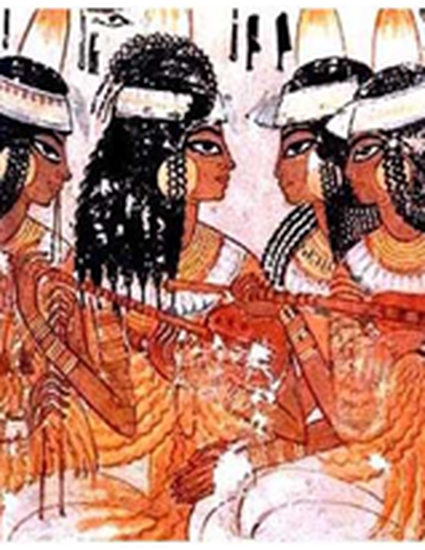
Article
The Evolution and Antithesis of Western Music
Music Faculty Publications
(2015)
Abstract
This article examines the Evolution and Antithesis of Western Music from early Biblical Times (3500 B.C.) through the Baroque Period (1600-1750 A. D.). The material presented encompasses many different cultures from around the world. Herein, the Sumerians, Babylonians, Greeks, Jews, Romans, and other cultures are examined. Religious and cultural ideologies clash while similarities parallel these mediums exposing juxtapositions that transcend throughout the ages.
The article discusses early musical systems, periodical musical practices, musical elements (voices vs. instruments) permitted and forbidden by the church, the use of sacred and secular music and the development of these “musical forms” which include but are not limited to: the four-part Cantus Firmus Mass, monophonic, polyphony, the Catholic Mass (four parts), the Parody Mass, Chorales, Madrigals, Motets, Rhythmic Modes, Organum (plain chant), Chants (Gregorian), Polyphonic Conductus, Notre Dame Organum, and Cantatas, etc.) and a short list of artists and composers throughout the ages.
The author presents the challenges and juxtapositions between faiths: Jewish vs. Christian, Catholic vs. Protestant, vocal vs. instrumental and sacred vs. secular. From cultural shifts, adversity, the Middle Age Crusades to the Council of Trent and Paris, the struggle for and against the arts has been the only constant.
Keywords
- Evolution,
- history of Western Music,
- Biblical,
- Middle Ages,
- Baroque Period,
- Jewish music,
- Christian Music,
- Catholic Music,
- Council of Trent,
- musical development,
- history,
- instrumental,
- vocal sacred,
- secular music
Disciplines
- Arts and Humanities,
- Art Practice,
- Ancient History, Greek and Roman through Late Antiquity,
- Cultural History,
- History of Religion,
- Medieval History,
- Oral History,
- Other History,
- Jewish Studies,
- Medieval Studies,
- Religion,
- Biblical Studies,
- Catholic Studies,
- Christian Denominations and Sects,
- Comparative Methodologies and Theories,
- History of Christianity,
- History of Religions of Western Origin and
- Higher Education
Publication Date
2015
Publisher Statement
Musical history and development from Biblical Times 3500 B. C. through the Baroque Period 1600 – 1750 A. D.
Citation Information
Dan Rager. "The Evolution and Antithesis of Western Music" Music Faculty Publications (2015) Available at: http://works.bepress.com/daniel_rager/11/
